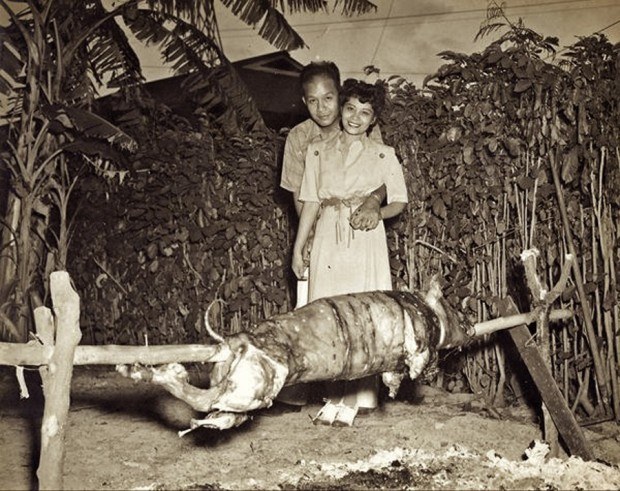In 1931, nine years after he’d emigrated from Villasis, Pangasinan, Philippine Islands to the U. S. Mainland, and two years after earning a Bachelor of Laws (LL.B.) degree at Lincoln University in San Francisco, Jose Bulatao (1906-1959) moved to Honolulu, where he published his own newspaper, “The Filipino Advocate.”
In 1933, he accepted a position as a police officer with the Kaua‘i Police Department, initially being stationed in Koloa.
Four years later, in 1937, officer Bulatao so impressed Kekaha Sugar Co. Manager Lindsay A. Faye with his cool and authoritative manner in defusing a potentially violent confrontation among Kekaha Sugar Co. laborers, that Faye not only offered him the post of Camp Police Officer at Kekaha Sugar, but promised to build him and his wife, Guadalupe, a new house as well. Bulatao accepted.
While employed as Kekaha Sugar’s camp policeman, Bulatao also assisted laborers with legal matters and paperwork. He was eventually promoted to Housing Administrator.
During World War II, Lt. Bulatao served with the Kaua‘i Volunteers, formed to supplement the Armed Forces and National Guard in defense of Kaua‘i.
In 1945, as president of the Territorial Filipino Council, he and Ayson, Los Banos Sr., Regala, Teho, Ligot, Pablo and Mr. and Mrs. Gamponia traveled to Washington to successfully plead with Congress to allow what would become the last major, organized Filipino migration to the U.S.
As chairman of the mission, the document he’d written and submitted to Congress, which was accepted and passed into law, resulted in the immigration of around 6,000 men, 446 women and 915 children to Hawai‘i — the 1946 Sakadas.
Bulatao was also active with the West Kaua‘i Lions Club, the Kekaha School PTA, the Kekaha Methodist Church and other organizations. He spearheaded the formation of the Kaua‘i Filipino Civic Association, which evolved into the United Filipino Council of Hawai‘i of today.
Sadly, Jose Bulatao died in an automobile accident in 1959, leaving behind his wife and four children.



